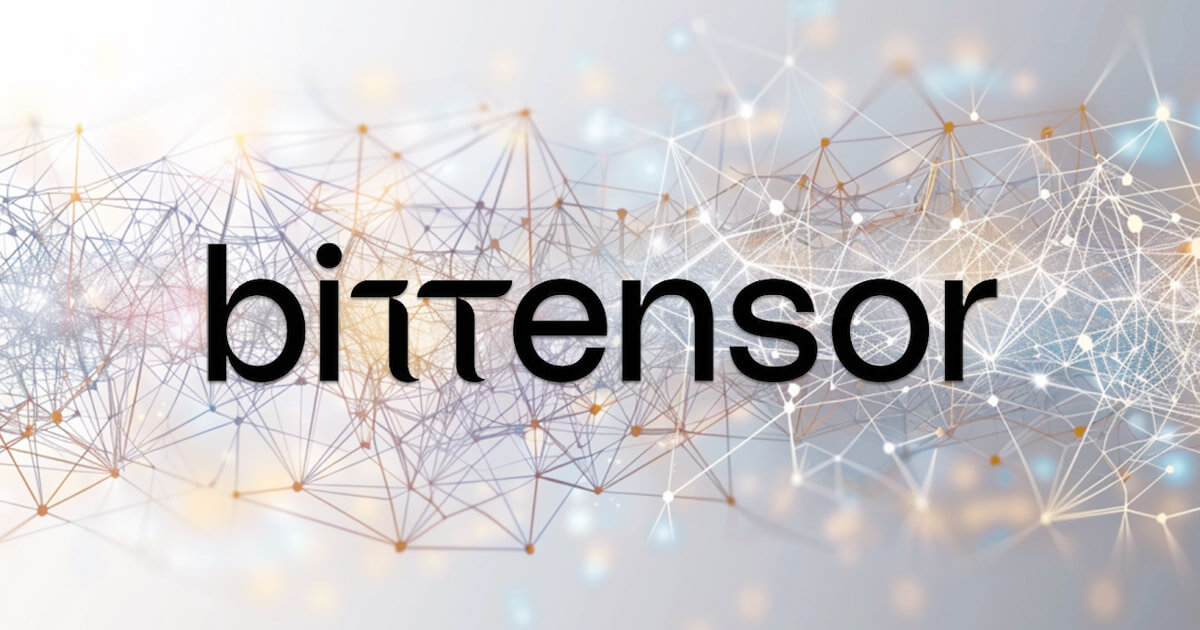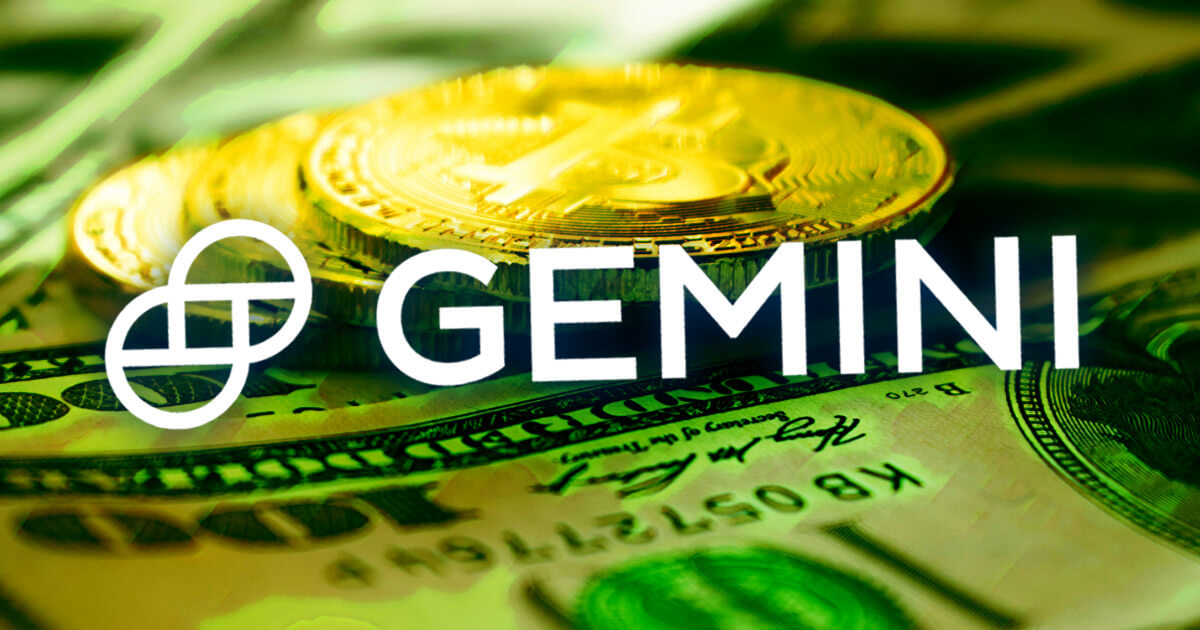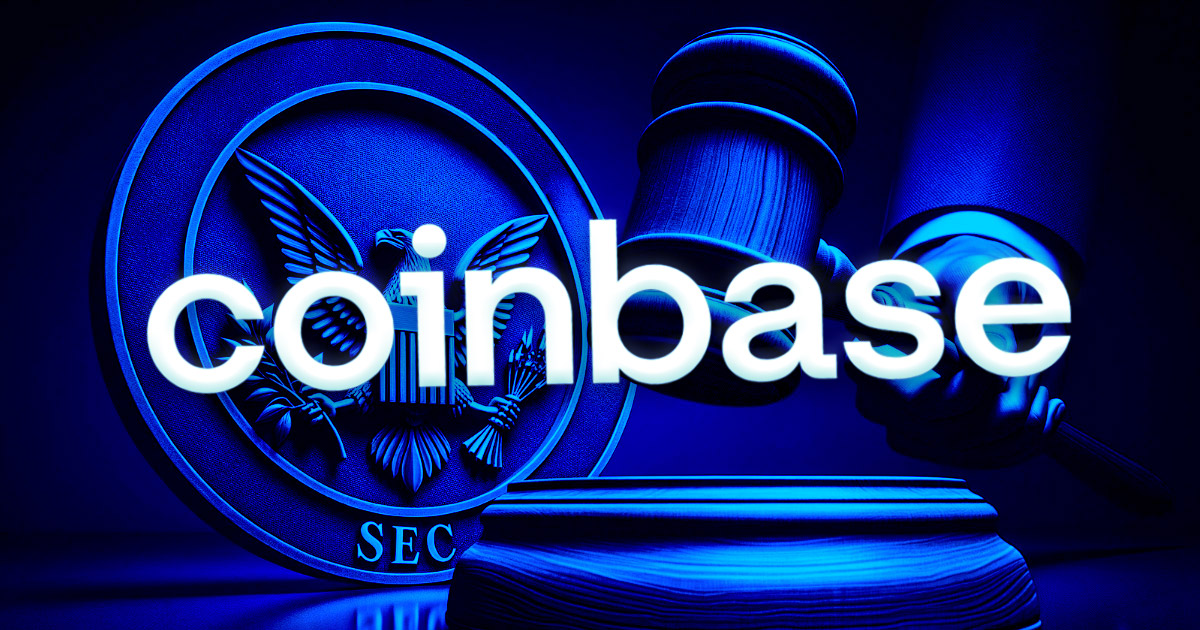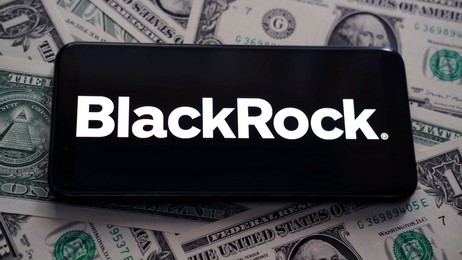Latest News
Winklevoss twins receive refund of over $300k from Trump’s campaign | MATIC News


Cameron and Tyler Winklevoss have been collectively refunded around $310,800 by the Trump 47 Committee since they exceeded the maximum amount of donation allowed by federal law, a campaign official told Bloomberg.
The founders of Winklevoss Capital Management and Gemini crypto exchange each donated $1 million worth of Bitcoin (BTC) to former president Donald Trump, the presumptive Republican presidential nominee for the 2024 elections.
According to federal law, a presidential campaign is legally allowed to accept a maximum donation of $844,600 from each person. It is not known however, whether the refund was processed in Bitcoin or its cash equivalent.
According to the Bloomberg report, the donated money is split between Trump’s presidential campaign, the leadership political action committee that pays his legal bills, the Republican National Committee, and 42 republican state party committees.
Trump is wooing the crypto industry
The news of the Winklevoss twins’ donation refund comes days after they decried President Joe Biden for his ‘anti-crypto’ policies while calling Trump the “pro-crypto” choice.
“President Donald J. Trump is the pro-Bitcoin, pro-crypto, and pro-business choice,” Tyler Winklevoss wrote in a post on X on June 20.
Over the past few weeks, Trump has re-iterated his intention to ease policies around crypto if re-elected. On June 7, Trump said that he will put an end to Biden’s “war on crypto” within an hour of taking office if re-elected. He also described himself as a “crypto president.” Trump also intends to turn U.S. into a Bitcoin mining powerhouse.
According to the Bloomberg report, Trump has also held discussions with Elon Musk on crypto policy.
The Winklevoss twins are not the only ones in the crypto industry who support Trump’s re-election. For instance, Brian Morgenstein, the head of policy at Bitcoin miner Riot Platforms, reportedly said:
“President Trump will protect your right to own Bitcoin, to mine Bitcoin, to transact with Bitcoin, and for many of us, to work in the Bitcoin industry.”
In late May, Trump also promised that on the first day after re-election, he would commute the life-sentence of Ross Ulbricht to time-served, thereby freeing the creator of the now-defunct darknet marketplace Silk Road.
Brian Hughes, a senior adviser to Trump’s campaign told Bloomberg:
“Crypto innovators and others in the technology sector are under attack from Biden and Democrats. While Biden stifles innovation with more regulation and higher taxes, President Trump is ready to encourage American leadership in this and other emerging technologies.”
The legal troubles of the Winklevoss twins
The Gemini exchange, which is run by the twins, used to run the now defunct Gemini Earn program, which allowed users to earn yield on their assets. The program was jointly run with Genesis, which filed for bankruptcy in January 2023.
Subsequently, several users of Gemini Earn spent months trying to recover their funds. In February, Gemini said it will return 100% of the user assets “in kind,” as part of a Genesis bankruptcy settlement with the New York Department of Financial Services (NYDFS).
In May, Gemini said that Earn users collectively received over $2.18 billion of their assets, representing 97% of all assets owed to Earn users. On June 14, the New York Attorney General’s (NYAG) office announced that it had completed its settlement with Gemini and recovered $50 million worth of assets of Earn users.
The NYAG said that Gemini “allegedly misled thousands of investors on the risks” of the Earn program.
Mentioned in this article
Latest News
Crypto VC investment ‘continued rebound’ in Q2 with $3.2 billion invested – Galaxy | MATIC News


Venture capital investments in crypto continued to rebound in the second quarter, with a total $3.2 billion invested during the period — up 28% compared to $2.5 billion in the previous quarter, according to Galaxy Digital latest research report.
The report also identified a 94% quarterly surge in median pre-money valuation, which rose to $37 million from $19 million in the first quarter.
Galaxy noted the second quarter’s median pre-money valuation is the highest since the fourth quarter of 2021 and represents an almost all-time high. It attributed the surge to a more competitive market, giving companies greater negotiation leverage in deals.
Meanwhile, the second quarter median deal size grew to $3.2 million from $3 million, up 7% after remaining largely steady for five quarters. Deal count fell to 577 in the second quarter, down from 603 in the first quarter but up from less than 400 in the fourth quarter of 2023.
According to the report:
“Despite a lack of available investment capital compared to previous peaks, the resurgence of the crypto market… is leading to significant competition and [FOMO] among investors.”
The report highlighted a positive shift in crypto venture capital sentiment, buoyed by a nearly 50% year-to-date rise in Bitcoin and Ethereum prices. If the trend continues, 2024 will have the third-highest investment capital and deal count numbers after the bull markets of 2021 and 2022.
However, the report also noted that despite Bitcoin experiencing a significant rise since January 2023, venture capital activity has not kept pace, trading well below the levels seen when the flagship crypto last traded above $60,000 in 2021 and 2022.
The divergence is attributed to several factors, including crypto-native catalysts like Bitcoin ETFs and emerging areas such as restaking and Bitcoin Layer 2 solutions. Additionally, pressures from crypto startup bankruptcies, regulatory challenges, and macroeconomic headwinds, particularly interest rates, have collectively contributed to the breakdown.
Other data and trends
Specific project categories led fundraising — including Web3, which brought in $758 million or 24% of all capital. Infrastructure brought in over $450 million (15%), trading and exchanges brought in under $400 million (12%), and Layer 1 brought in under $400 million (12%).
Bitcoin Layer 2 networks continued to see significant investments of $94.6 million, up 174% on a quarterly basis. Galaxy said “investor excitement remains high” around the possibility of composable blockspace attracting DeFi and NFT projects to Bitcoin.
US companies dominated VC investment, attracting 53% of all capital and 40% of deals. Galaxy said US dominance exists despite regulatory change that could cause companies to leave the country and warned policymakers to be aware of their impact.
Early-stage firms received about 78% of capital, while late-stage companies received 20% of all capital. Galaxy said that larger general VC firms have left the sector or scaled down their activity, reducing the ability of later-stage startups to raise money.
Mentioned in this article
Latest News
Bittensor proposes burning 10% supply to stabilize TAO following $8 million exploit | MATIC News


OpenTensor Foundation (OTF) has proposed burning 10% of the Bitttensor (TAO) supply to stabilize the token’s price in response to a recent exploit that led to the loss of $8 million worth of the tokens.
The decentralized AI network has put forward a vote for users to decide on the burn. Active voters participating in the proposal will be rewarded with compensatory DAO rewards at a later date.
The exploit, which occurred on July 2, saw a Bittensor user lose 32,000 TAO tokens due to a leaked private key. The incident caused an immediate 15% drop in TAO’s price, hitting a six-month low of $227. The price has since rebounded slightly to $240.
Attack timeline
The attack timeline reveals that the incident began on July 2 at 7:06 P.M. UTC when funds started being transferred out of wallets.
OTF detected the abnormal transfer volume and initiated a war room by 7:25 P.M. UTC, and by 7:41 P.M. UTC, the team had neutralized the attack by placing validators behind a firewall and activating safe mode to prevent nodes from connecting to the chain.
During this period, the network was configured to only produce blocks, halting all transactions to prevent further losses and allowing time for a thorough investigation.
The root cause of the attack was traced back to a malicious package in the PyPi Package Manager version 6.12.2, which compromised user security. The package, posing as a legitimate Bittensor package, contained code designed to steal unencrypted coldkey details.
When users downloaded this package and decrypted their coldkeys, the decrypted bytecode was sent to a remote server controlled by the attacker.
The incident prompted an immediate response from the OTF team, which prioritized the security breach over regular updates and maintenance. The disruption has been a significant test for the network, highlighting both its vulnerabilities and the resilience of its infrastructure.
Aftermath
Despite the severity of the attack, some validators, such as RoundTable 21, confirmed that their delegators’ funds remained secure, emphasizing that the exploit did not impact all users uniformly.
However, the decision to halt the chain has led to a debate within the community about its implications for Bittensor’s claim of decentralization. Critics argue that the ability to pause the chain contradicts the principles of a decentralized AI network, while supporters believe it was necessary to protect users’ assets.
OTF plans to gradually resume normal operations of the Bittensor blockchain, ensuring a safe and responsible approach. Regular progress updates will be provided to the community.
As a precaution, users who suspect their wallets were compromised are advised to create new wallets and transfer their funds once the blockchain resumes normal operation. Additionally, upgrading to the latest version of Bittensor is strongly recommended.
Moving forward, Bittensor will implement enhanced package verification processes, increase the frequency of security audits, adopt best practices in public security policies, and improve monitoring and logging of package uploads and downloads.
The proposed token burn and ongoing security enhancements aim to restore confidence in the TAO ecosystem. The outcome of the vote will play a crucial role in stabilizing and securing the network, with the community eagerly awaiting further updates from the developers.
Mentioned in this article
Latest News
Europe’s largest Bitcoin miner Northern Data to launch IPO in the US | MATIC News


Europe’s largest Bitcoin miner, Northern Data AG, has announced plans for a substantial initial public offering (IPO) in the US at a valuation between $10 billion and $16 billion.
The IPO, which will be held on the Nasdaq stock exchange, is scheduled for the first half of 2025 and may also include selling a minority stake to investors prior to the public listing.
Following the IPO announcement, Northern Data’s shares on the XETRA stock exchange surged by over 5%, reaching €25. This positive market reaction indicates strong investor confidence in the company’s future prospects. The firm first considered an IPO in 2021 but decided against it at the time.
The upcoming offering will highlight two of Northern Data’s key business units: Taiga, which handles the company’s cloud computing activities, and Ardent, which manages its data centers. Both units are crucial to Northern Data’s strategy to capitalize on the rapidly expanding AI sector.
The crypto industry continues to face regulatory challenges. Previous attempts by digital asset firms to go public, including Circle, encountered difficulties due to regulatory scrutiny. However, Northern Data’s focus on AI and cloud computing may help it navigate these challenges more effectively.
AI pivot
Originally founded as Northern Bitcoin AG, Northern Data has grown into a significant player in the Bitcoin mining industry. In recent years, the company has diversified its operations to include artificial intelligence (AI) and cloud computing, responding to the decreasing profitability of Bitcoin mining and the growing opportunities in these fields.
In November 2023, Northern Data secured $610 million in debt financing from Tether. The investment is intended to strengthen Northern Data’s AI and cloud computing operations.
The financing followed a strategic partnership between the two companies announced in September 2023. The partnership aimed to focus on AI, peer-to-peer communications, and data storage solutions.
Northern Data’s pivot towards AI and cloud computing reflects a broader industry trend. As the profitability of Bitcoin mining declines, many companies, including Core Scientific and Hut 8 Corp, are exploring new revenue streams.
Committed to Bitcoin mining
While diversifying its business, Northern Data remains committed to Bitcoin mining and plans to continue expanding its footprint in the industry.
Peak Mining, the company’s US-based Bitcoin mining unit, is a significant part of its operations, with nearly 700 megawatts of high-performance computing data centers. In 2023, Peak Mining mined 2,298 BTC, generating over $64 million in revenue despite an 18% year-over-year decrease in production.
Northern Data’s presence in the US has been growing steadily. In May, the company acquired its second 300-megawatt mining site, further solidifying its position in the American market. The expansion highlights Northern Data’s long-term commitment to Bitcoin mining, even as it explores new technological frontiers.
Mentioned in this article
-

 Hot Projects4 months ago
Hot Projects4 months agoBitcoin Blasts Past $70,000 to Register New All-Time High | MATIC News
-

 Latest News4 months ago
Latest News4 months agoCourt upholds SEC’s unregistered securities claims against Gemini, Genesis’ Earn program | MATIC News
-

 Latest News2 months ago
Latest News2 months agoSix Coinbase customers claim the exchange is violating securities laws in new lawsuit | MATIC News
-
Hot Projects2 months ago
Bitcoin Will Be Set For New ATHs If It Breaks This Resistance: Analyst | MATIC News
-

 Hot Projects3 months ago
Hot Projects3 months agoBitcoin ETF Inflows Could Eclipse $1 Trillion, Predicts Bitwise CIO | MATIC News
-

 Hot Projects3 months ago
Hot Projects3 months agoOndo Finance Joins BlackRock Tokenized Fund As Inflows Surpass $160M | MATIC News
-

 Latest News4 months ago
Latest News4 months agoOver $1 billion wiped off HEX’s valuation following Richard Heart’s disparaging remarks | MATIC News
-

 Latest News2 months ago
Latest News2 months agoNew Hampshire representative proposes Bitcoin ETF investment to address state financial liabilities | MATIC News


